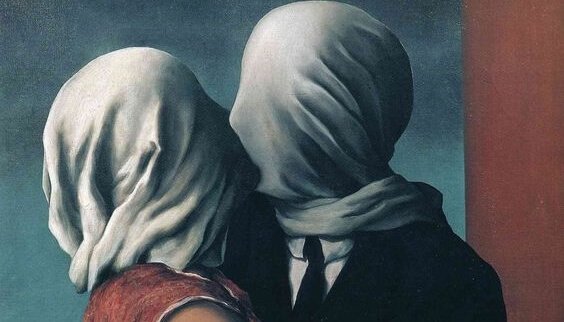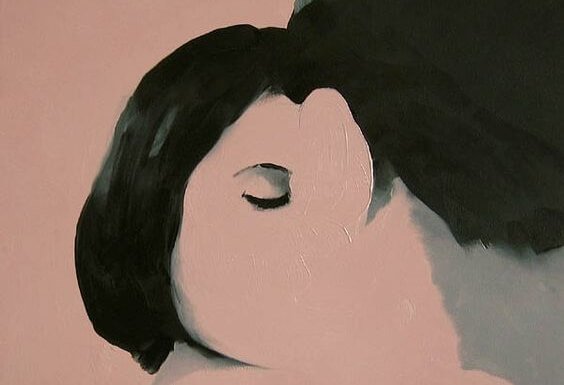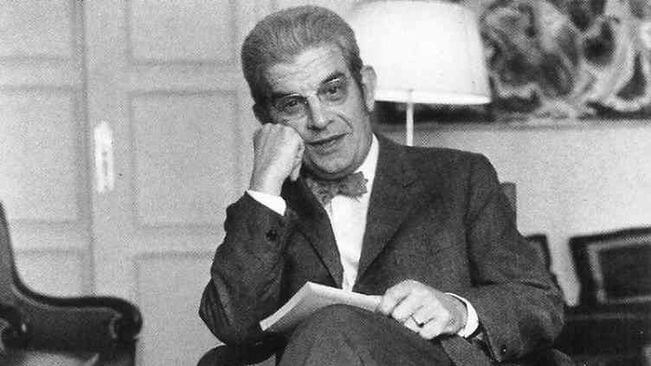9 Extraordinary Phrases from Jacques Lacan

Many of the phrases of Jacques Lacan are the reflection of his theory. This is one of the most complex, deep, and interesting perspectives of the 20th century.
Lacan was a French doctor, psychiatrist, and psychoanalyst who turned away from orthodox psychoanalysis. Although he always said that his theses were a reply to Sigmund Freud, Lacan introduced novel elements such as the theory of language and mathematics.
By its very nature, psychoanalysis is not a doctrine, nor a monolithic theory. Some claim that there are as many approaches to psychoanalysis as there are psychoanalysts. Even so, throughout history there have been different schools, like the Lacanian.
Today, Lacanian psychoanalysis continues to be relevant. It is, without a doubt, one of the most controversial in history. It is also one of the most suggestive and admirable. We most likely still do not fully understand it. However, it is worth mentioning some of Lacan’s phrases that condense part of his thought. These are some of them.
“As Picasso once said, to the shocked surprise of those around him – I do not seek, I find.”
-Jacques Lacan-
1. Truth and deception
Lacan has seemingly contradictory phrases such as the following: “The truth is the error that escapes delusion and is reached from a misunderstanding.” For this thinker, what circulates daily between people is not the truth. It is not that everyone intends to deceive others, but that they ignore their own truth. That’s why they can’t express it.

However, there are times when the truth “escapes” us, so to speak. When a slip of the tongue happens, for example. Or when we speak without thinking. On the surface, this is the product of an error and gives rise to a misunderstanding but, in reality, it is the truth opening up step by step and giving light to the situation.
2. The unconscious and language
Jacques Lacan was strongly influenced by the theory of language, which was very much in vogue in the 20th century. Lacan introduced purely linguistic concepts to Freud’s classical psychoanalysis. One of the most important of these concepts is: “The structure of the unconscious is similar to a language.”
For Lacan, the unconscious works as if it were a language. This means that in order to know and understand it, the guidelines are similar to those that would be used to decipher a language. For example, dreams should be interpreted as metaphors or metonymies.
3. One of the most enigmatic phrases of Lacan
Love is the most recurrent them for Lacan. His perspective is enigmatic and fascinating. One of his best known sayings is: “To love is to give what you do not have to someone who does not exist.”

For Lacan, love, as well as much of what we call “reality” is an equivocation. Among those who love each other, there is a promise that is actually false: complementing oneself, giving oneself happiness. Although this commitment is not explicitly stated, it shines in the depths of romantic relationships. That’s why Lacan says that you give what you do not have.
At the same time, the other person is not perceived in a real way. The properties of the other person respond to unconsciously given labels. You do not really love the other person, you love the image you have of them. That is why he concludes by saying “who does not exist”.
4. Love and betrayal to oneself
Love for Lacan is, above all, a type of bond that is born from words. If there is no word, what exists is falling in love. That is, an imaginary fascination. While sexual desire turns the other into an object of satisfaction, love transcends it. It addresses the other as a being, not as an object.
To love, then, is to be of the other. Their faults and weaknesses are accepted. When it transcends the simple desire to be loved in return, love becomes an active gift. However, this love also has a limit, which is established in one of Lacan’s quotes: “When the loved one goes too far in betraying himself and perseveres in the deception of himself, love no longer follows.”
When there is love, one loves the other’s being. That being betrays itself constantly and still, it continues to love. However, when this betrayal reaches too far, to the point that the being is disfigured, the feeling disappears. In other words, you stop loving those who betray themselves, deceive themselves, and otherwise stop being that person you fell in love with.
5. Another strong statement by Jacques Lacan
One of Lacan’s quotes goes like this: “I ask you to refuse what I offer you because it is not ‘that'”. This sentence refers mainly to the relationship between a psychoanalyst and their patients. Lacan did not call his clients “patients”, instead using the term “analysand”. This is because he saw his clients as active in psychoanalysis.

The analysand is not fully aware of what he is going to look for in a psychoanalysis. Furthermore, the link between the psychoanalyst and analysand takes different forms throughout the process. The words that the analysand says are not those that describe their truth. And those words are what he offers in that process.
The quote, therefore, has to do with the ethical position of the psychoanalyst. Theirs is to reject what the analysand offers. That is, a mistake. This is one of the phrases of Jacques Lacan that alludes to the psychoanalytic process and that frames it, above all, as an ethical ground.
6. Guilt and desire
Jacques Lacan’s quotes are not designed to facilitate readers’ comprehension. That is why many of them are convoluted and seem airtight. Most do not allow for a literal analysis, but suggest or refer to other meanings.
“The only thing of which we can be guilty is of having given ground relative to one’s desires.” This is one of Lacan’s quotes that has been interpreted many different ways. To understand the sentence, we must first say that, for Lacan, on one side of the coin is fault and on the other side is responsibility. Blame is a reproach of the “super ego”, or that irrational awareness of duty. Responsibility is, above all, awareness of the true desire of the subject,
Therefore, what this phrase means is that, as long as there is no awareness of desire, guilt will always appear. Recognizing what you really want is an act of responsibility. If one takes responsibility for their desire, not denying it or giving it up, then guilt will disappear.
7. About fidelity
Fidelity is an eternal theme. Within the phrases of Jacques Lacan that refer to the subject, there is a text that is very telling: “Can there be anything that justifies fidelity, other than the word pledged? However, the word pledged many times is pawned lightly. If he did not insist on it that way, it is probable that he was engaged very rarely.”

The word is the central axis in all of Lacan’s theory. In this case, it directly links fidelity to the word. It seems to suggest that this loving fidelity is not natural, nor spontaneous. On the contrary, it is only founded or begins to exist if the commitment to be faithful is given through words.
The couple should not assume that fidelity is part of a relationship in a natural way. Nor is it reasonable for him to pledge his word to be faithful, if he does not first analyze the real possibilities of fulfilling it.
8. Lack and Love
Jacques Lacan says: “You can love someone not only because of what he has, but literally because of what they lack.” Love is directed to the integral being of the other. To its particularity. To all that is and also all that is missing. You do not love “in pieces”. The feeling is experienced by the whole being of the other.
In Lacan’s phrase, the key word is “literally”. In principle, this refers to the sexual differentiation of both genders. Men have what women lack physically: the phallus. At the same time, men do not have what women do: their anatomy, their capacity to grow a child.
Therefore, the lack of the other is literally loved. The man to the woman, because she does not possess a phallus, in physical terms. The woman loves the man because he lacks what she has. Although this explanation can be translated to the plane of the symbolic as well.
9. Art in Lacan
Art is another frequent theme in Lacan’s theory. For psychoanalysis, the only unconscious defense mechanism that is successful is sublimation. Through it, instinctive impulses are transformed into valid cultural products. Art, science, and all creative activity are the result of sublimation.

Faced with art, Lacan says: “All art is characterized by a certain way of organizing around the void.” This means that what is sublimated escapes consciousness. You really do not know what it is. It is something that is inexpressible with words. A void around which creation is organized.
Although certainly the phrases of Jacques Lacan, as well as all his theory, are not easy to understand, they contain a deep knowledge. This has been a modest attempt to penetrate those enigmas, but of course it fails to elucidate one of the brightest approaches to the human mind.
This text is provided for informational purposes only and does not replace consultation with a professional. If in doubt, consult your specialist.








